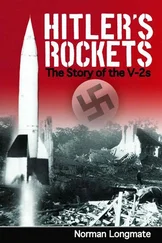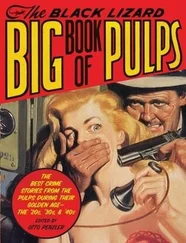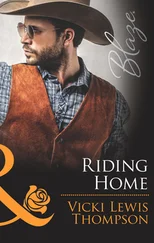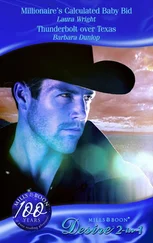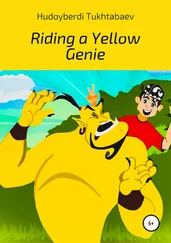Mike Mullane - Riding Rockets
Здесь есть возможность читать онлайн «Mike Mullane - Riding Rockets» весь текст электронной книги совершенно бесплатно (целиком полную версию без сокращений). В некоторых случаях можно слушать аудио, скачать через торрент в формате fb2 и присутствует краткое содержание. Жанр: Старинная литература, на английском языке. Описание произведения, (предисловие) а так же отзывы посетителей доступны на портале библиотеки ЛибКат.
- Название:Riding Rockets
- Автор:
- Жанр:
- Год:неизвестен
- ISBN:нет данных
- Рейтинг книги:3 / 5. Голосов: 2
-
Избранное:Добавить в избранное
- Отзывы:
-
Ваша оценка:
- 60
- 1
- 2
- 3
- 4
- 5
Riding Rockets: краткое содержание, описание и аннотация
Предлагаем к чтению аннотацию, описание, краткое содержание или предисловие (зависит от того, что написал сам автор книги «Riding Rockets»). Если вы не нашли необходимую информацию о книге — напишите в комментариях, мы постараемся отыскать её.
Riding Rockets — читать онлайн бесплатно полную книгу (весь текст) целиком
Ниже представлен текст книги, разбитый по страницам. Система сохранения места последней прочитанной страницы, позволяет с удобством читать онлайн бесплатно книгу «Riding Rockets», без необходимости каждый раз заново искать на чём Вы остановились. Поставьте закладку, и сможете в любой момент перейти на страницу, на которой закончили чтение.
Интервал:
Закладка:
Several months later I caught another glimpse of how polio was torturing my dad. My mom was grocery shopping and as I wandered the aisles of the store I encountered a man showing a friend his artificial legs. I overheard him speaking: “Lost both my legs in the war.” He punctuated the comment by rapping on each shin with a cane. I was fascinated at the freakishness of the injury and stared. The men separated, the veteran walking away with the aid of his cane and a hip-swinging gait. For a moment I was struck as still as Lot’s wife. The man had no real legs but he was walking. I broke from my shock and ran after him. “Mister!” I called. He stopped. “Mister, how can you walk? You don’t have any legs.” He smiled at my innocence. “Son, a German mortar blew off my legs. The doctors strapped on these pretend legs.” Again he slapped his cane against one of the limbs. It made a hollow sound.
I smiled. “Thanks, Mister.”
I sprinted past my mom. “Where are you going, Mike?”
“I’m going to see Dad.”
I ran to the parking lot and climbed into the front seat of the car and breathlessly explained to my father what I had seen. “Dad, there’s a man in the store who doesn’t have real legs. They got cut off in the war. The doctor gave him pretend legs. But he’s walking!” I blurted out the news while wearing a huge smile.
My dad stared at me, total confusion written on his face. He didn’t get it. He didn’t understand the significance of what I had just discovered. But I would be the hero and explain it to him. “Dad, all you have to do is ask the doctor to cut off your legs and then he can give you pretend legs and you can walk again, just like that man in the store!”
Immediately tears welled in his eyes. He tried to smile. “Mike, thank you for that idea, but it’s not my legs that are the problem. It’s my nerves. The polio germs ate them up. Cutting off my legs wouldn’t help me.”
My face fell in crushing disappointment. I was certain I had stumbled on the secret to putting my father back on his feet. Dad hugged me and cried into my neck. I was so confused. I didn’t understand germs or nerves. I only understood what my eyes had told me, that it was possible to walk without real legs.
“You go on and help your mom with the groceries.”
I climbed from the car and walked backward a couple steps, staring at my dad. His head was resting on the steering wheel and he was sobbing.
This was the last time he ever revealed to me or my siblings what must have been a titanic struggle to adapt to life without legs. But he did. Within a year he had returned to being the man I remembered before polio. His Washing Machine Charlie imitation got even better.
After several months of recovery in Texas my parents were faced with the decision of where to settle the family. Wichita Falls was not an option. It was an oil and cattle town with limited employment opportunities for the handicapped. And there was no thought given to returning to my dad’s hometown, New York City. The vertical landscape there would make a wheelchair life difficult. So they picked Albuquerque, New Mexico, as their post-polio home. During our travels we had driven through the city a couple times and Mom and Dad had always liked it. There was a VA hospital, work opportunities, and a climate that made wheelchair life a little more tolerable.
Albuquerque was my last childhood move and I thank God for it. We were permanently in the west. No longer did we have to drive for days to reach the deserts and mountains we had all come to love. Now we could satisfy our collective need to see over the next horizon on a weekly basis. The fact my dad could not walk was hardly an impediment to our adventures. He had five boys and we could carry him and his wheelchair anywhere. And we did. We hefted him over steep and rugged terrain to an isolated lake and put him in my brother’s canoe. We carried him across streams and along trails. We sat him in meadows to enjoy a sunset or the majesty of a distant thunderstorm.
In addition to the wheelchair-bearer duties, my dad’s polio also turned us into bartenders and urine-dumpers. My dad was a 7-and-7 man and at the end of the day we would mix him a highball of Seagram’s Seven whiskey and 7-Up. He trained each of us to pour two fingers of the liquor, add ice and then the soft drink. He also trained us to empty containers of his urine on road trips.
On one drink-making occasion, my little brother found an already opened bottle of 7-Up. He brought the drink to my dad, who tossed back a swallow. “Christ, Mark, how much whiskey did you put in this? It’s really strong.” My brother explained he had used a two-finger measurement, just like always. Only after Dad was down to slurping on the ice did the lightbulb come on. Earlier in the day, when nobody had been around, he had peed in an empty 7-Up bottle and left it on a table. He jerked the highball from his mouth and sniffed it like a dog at a hydrant. “Mark! Where did you find the 7-Up for my drink?”
“There was a bottle of it on the table.”
“Jesus Christ! I’ve been drinking a 7-and-piss.” Moments later, with a fresh drink in his hand, Dad philosophically mused, “I guess if you have to drink urine, it’s best you drink your own.”
There was one item from my dad’s walking life that he adamantly refused to let polio take from him: his beloved toolbox. It came with us on every trip. In spite of past experience, Dad was convinced he would someday save us all from a serious car malfunction with his tools. He got his chance on a blistering day in June 1963. We were on a trip through a remote area of desert in northwest New Mexico. (The term remote will always be redundant in describing the venues of Mullane adventures.) The car began to surge. For a moment there would be acceleration, then coast, then acceleration. My dad frantically oscillated his accelerator hand control up and down, hoping to clear the problem. At this point most drivers would probably have exclaimed, “There’s something wrong with the car!” But it was impossible for my aviator father to avoid the lexicon of his prior life. “We’re losing power!” was his cry. It would not have surprised me in the least to have heard, “The goddamn Japs have got us. Feather number two!”
We coasted into the dirt parking area of a small adobe Indian trading post. Faded signs advertised turquoise jewelry, rugs, and other curios. A wooden porch provided the only shade within a hundred miles. A half dozen Indians sitting on chairs and several scruffy dogs lying on the planking had staked their claim to that shade. I recall how fascinated my brothers and I were by the fact the Indians were dressed like cowboys. They wore denim and boots and large western hats. My mom admonished us not to stare but we did nevertheless. The Indians were as still as carvings. Our clattering, sputtering arrival seemed invisible to them. They didn’t move, scratch, wave away a fly, or speak. They just sat on their chairs staring into the shimmering heat in utterly silent, regal repose.
My dad instantly diagnosed the car problem. “Balls! It’s the goddamn fuel pump.” For some strange reason, the testicular epithet balls was my dad’s favorite obscenity.
“Hugh, not in front of the children!” was my mother’s favorite response to his swearing. Hers was a cry I heard many, many times in my youth, but it never altered my dad’s vocabulary.
Dad locked his leg braces and rose onto his crutches. In spite of this strange sight, the six Indians remained as still as a Remington bronze. The station wagon, the jabbering kids, the man on crutches appeared no more remarkable to them than a dust devil.
Three of us boys joined my dad at the fender and popped the hood. “I’ll show you kids how to test the fuel pump.” For once we had the right tools and my dad leaned into the engine and began to work. He disconnected the output of the fuel pump. Then he pulled the distributor wire. He explained his actions: “I’ll have Mom turn the key. The car won’t start because I’ve pulled the distributor wire. But the starter will turn the cam shaft, which will cause the fuel pump to operate. If it’s working, we should see gas from this hose.”
Читать дальшеИнтервал:
Закладка:
Похожие книги на «Riding Rockets»
Представляем Вашему вниманию похожие книги на «Riding Rockets» списком для выбора. Мы отобрали схожую по названию и смыслу литературу в надежде предоставить читателям больше вариантов отыскать новые, интересные, ещё непрочитанные произведения.
Обсуждение, отзывы о книге «Riding Rockets» и просто собственные мнения читателей. Оставьте ваши комментарии, напишите, что Вы думаете о произведении, его смысле или главных героях. Укажите что конкретно понравилось, а что нет, и почему Вы так считаете.

